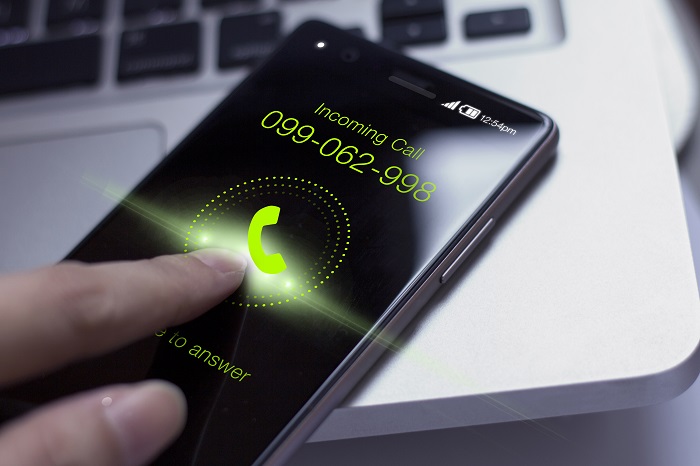The U.S. Court of Appeals for the Seventh Circuit recently affirmed a trial court’s judgment that an insurer had no duty to defend a debt collector in an action brought by a consumer asserting claims under the federal Fair Debt Collection Practices Act (FDCPA) and the federal Telephone Consumer Protection Act (TCPA), as well as common law claims of defamation and invasion of privacy.
Posts published in “ATDS”
The U.S. Court of Appeals for the Eleventh Circuit recently affirmed entry of summary judgment in favor of a student loan servicer against claims raised by a customer for purported violations of the federal Telephone Consumer Protection Act (TCPA).
The U.S. Court of Appeals for the Tenth Circuit recently affirmed a trial court’s second denial of class certification of claims raised under the federal Telephone Consumer Protection Act (TCPA).
The U.S. Court of Appeals for the Sixth Circuit recently affirmed entry of summary judgment in favor of plaintiffs alleging violations of the federal Telephone Consumer Protection Act for calls placed by their student loan servicer to their cell phones using an alleged automatic telephone dialing system (ATDS) after they revoked consent to receive such calls.
The U.S. Court of Appeals for the Eleventh Circuit recently reversed entry of summary judgment in favor of a satellite television provider against a consumer on claims that it violated the Florida Consumer Collection Practices Act by attempting to collect a debt it knew had been discharged in bankruptcy and directly contacting the plaintiff consumer knowing she was represented by counsel.
The U.S. Court of Appeals for the Ninth Circuit recently held that the term automatic telephone dialing system (“ATDS”), as defined by the federal Telephone Consumer Protection Act, includes devices that store telephone numbers to be called, “whether or not those numbers have been generated by a random or sequential number generator.” Accordingly, the Ninth Circuit vacated the trial court’s order dismissing the plaintiff’s putative class action asserting violations of the TCPA, 47 U.S.C. § 227, et seq. A copy of the opinion in Marks v. Crunch San Diego, LLC is available at: Link to Opinion. In 2012, the plaintiff signed up…
Following the D.C. Circuit’s ruling in ACA Int’l v. FCC, the U.S. Court of Appeals for the Third Circuit recently held that an “automatic telephone dialing system” under the federal Telephone Consumer Protection Act must have the present or current capacity to store or produce telephone numbers using a random or sequential number generator, and to dial those numbers. A copy of the opinion in Bill Dominguez v. Yahoo, Inc. is available at: Link to Opinion. The plaintiff purchased a cellphone with a reassigned telephone number. The prior owner of the number subscribed to an email service provider’s “Email SMS Service,”…
In a non-precedential ruling, the U.S. Court of Appeals for the Seventh Circuit recently affirmed a district court ruling finding that telephone calls placed to a pro se consumer’s cellular telephone number did not violate the federal Telephone Consumer Protection Act (TCPA) because the calls were placed manually, and not using an automatic telephone dialing system (ATDS). In so ruling, the Seventh Circuit focused on the company representative’s declaration and the company’s call log establishing that the calls were initiated by a live representative, who made the calls by entering all numbers by hand. A copy of the opinion in Wayne…
In an Oct. 23 ruling, the Third Circuit Court of Appeals offered a mixed opinion that has the effect of both limiting and expanding the interpretation of automatic telephone dialing systems (ATDS), which can trigger a claim under the federal Telephone Consumer Protection Act. While the ruling poses increased risk for businesses that use dialers to contact customers, it also offers guidance on what can be done to reduce that risk. The opinion, Dominiguez, et. al v. Yahoo, Inc., is not precedential, meaning courts within the Third Circuit (New Jersey, Delaware, Pennsylvania and U.S. Virgin Islands) are not obligated to follow…
A bill before the U.S. Senate would make commercial robocalls a federal crime, exacting up to a $20,000 fine and a prison sentence of up to 10 years. Introduced on June 25 by Sen. Chuck Schumer (D-NY), S. 1681 would criminalize the use of an automatic telephone dialing system or an artificial or prerecorded voice for calls made “for the purpose of soliciting or encouraging the purchase or rental of, or investment or enrollment in, property, goods, or services,” unless the caller obtained the “prior express written consent” of the recipient of the call. The proposed QUIET Act is nearly identical to…










